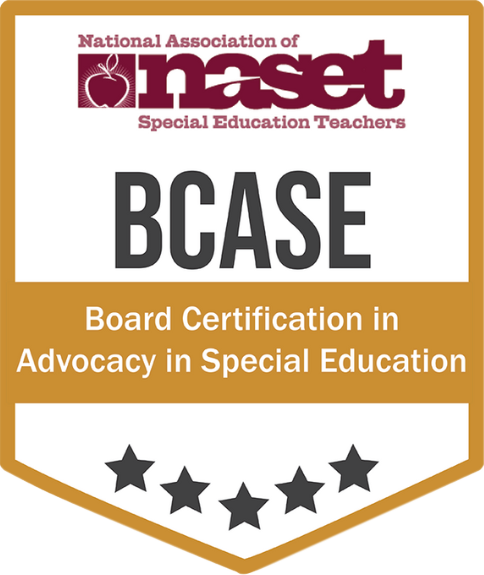Facing Cheating Allegations? We’ve got your back.
Charges of academic dishonesty can lead to suspension or even expulsion. But you don’t have to fight them alone. Our student defense team has the experience, expertise, and dedication to successfully defend you. You have options. We can help.
What We Do
Cheating allegations can come without warning and escalate quickly. It’s important to know your rights, how to respond to the charges, what steps you need to take, and the disciplinary procedures you’re going to face. Universities can have complex and confusing disciplinary processes. Knowing how to navigate them successfully is critical.
Once accused, you’re in the initial stage of a process that may involve meetings with university administrators, an investigation, a hearing, and multiple appeals, potentially taking months to resolve. Our student defense team will guide you every step of the way by:
Immediately connecting you with an Advisor from our student defense team to interview you and investigate all the facts of your situation
Researching school policies and legal issues to ensure that the school followed all proper procedures for fair due process
Gathering evidence and developing a defense strategy
Managing communications between you and the school
Appearing with and/or coaching you for meetings with faculty or administrators
Writing all appeals on your behalf
Joining you (remotely) in any hearings and preparing you by writing opening and closing statements, talking points, and answers to potential questions you may face, as allowed by school policies
Potentially contacting your university’s attorney to negotiate the best possible result for you
What You Can Do
If you’ve received a cheating accusation, the stress and confusion can be overwhelming. But don’t panic. You have rights and options.
1. Stop, Think, Learn
Your school may pressure you to respond to an allegation or accelerate the disciplinary process before you understand what you’re dealing with or have all the necessary information. Request specific answers before you take any action:
What conduct led to the allegation?
When and where did the alleged incident(s) take place?
What school policy or policies were allegedly violated?
What is the basis of the accusation?
What are the next steps in the disciplinary process?
Don’t accept allegations without proper documentation. Request all information about the charges in writing. You aren’t obligated to discuss, admit to, or deny charges outside the requirements of the formal disciplinary process. Your first step is to get all the information and support you need.
2. Do Your Research
Read your school’s Honor Code, Student Code of Conduct, and/or Student Handbook to understand what due process steps you are guaranteed under school policies and request that the school comply with them.
INSIGHTS
3. Know Your Rights
Familiarizing yourself with school policies will allow you to hold the school accountable for providing you with mandatory due process. This will also tell you what you can expect in disciplinary procedures and what steps will be involved in defending yourself. Remember, in the initial allegation stage, you aren’t obligated to admit to or deny anything.
4. Get Help
What you don’t know can hurt you; and defending yourself alone comes with risks. Don’t wait to reach out for help. Mistakes in the first steps of the disciplinary process can end your chances of success.
Begin the process informed and strong. Our legal and education advisors are here to support you with expert knowledge, insight, and commitment gained from years of experience defending students against cheating allegations at public, private, and non-profit schools all across the country.
Protect Your Future
Universities are increasingly cracking down on cheating and sanctions for a finding of responsibility can be severe. But with the right support and advocacy, you can ensure that a cheating allegation won’t threaten your education or leave a mark on your record that may limit your academic and professional opportunities.
If you’ve been falsely accused, you deserve a fair process and outcome. If you simply made a bad decision, you deserve a second chance. Our team is committed to getting students the best possible results, regardless of their situation.
CONTACT US NOW
FOR YOUR CASE CONSULTATION
FAQs
Sanctions for cheating vary according to the severity of the misconduct, the university and program’s policies, and the student’s previous disciplinary record. Some schools may only sanctions students found guilty of cheating by issuing a zero on an assignment or exam, while others may expel students for any academic integrity violation. Most universities have tiers of disciplinary measures based on the seriousness of the violation, which can range from academic probation or failure of a class or assignment to suspension or dismissal.
Academic dishonesty encompasses many forms of misconduct considered a violation of academic integrity, which can be found in a university’s honor code and/or academic integrity policies. While institutions may vary as to exactly what constitutes a violation, and how they define cheating, some common examples of misconduct include: plagiarism, unauthorized collaboration, unauthorized use of technology or outside materials, misrepresenting oneself, failing to follow assignment or exam instructions, falsifying documents, and failing to report a known honor code violation.
Your student rights and entitlements are described in, and governed by, your university’s disciplinary process documents and any policies specific to your degree program. If you attend a publicly funded state university, your school’s policies may be regulated by state laws. However, for private universities, both nonprofit and for-profit, your educational rights are limited to the terms set forth in the individual university’s policies.
Once accused, your university will begin its own procedures for investigating and judging the merits of the charges. These are unique to each school, but commonly involve steps which may include meeting with faculty or school administrators, an investigation, a hearing, and an appeals process.
Students facing academic dishonesty allegations have the right to seek counsel from an attorney for support and guidance in defending themself. However, universities vary regarding the extent an attorney can be directly involved in the disciplinary process. Some schools, for example, may only allow a support person or advisor, rather than an attorney, to accompany them in a hearing.
If you successfully fought an allegation of academic dishonesty, and were found not responsible, then your transcript and academic record will not explicitly note that you faced accusations. However, documentation of the accusation and any disciplinary procedures you participated in will remain in the university’s records. If you are pursuing further education and professional affiliations, e.g. medical school or law school and application to the American Bar Association, you may be asked if you have ever been accused of academic misconduct. A prospective university, employer, or association may request access to your full academic and disciplinary record, meaning a lack of transparency if faced with such a question could have significant consequences.
You have no legal or educational obligation to inform anyone of cheating allegations. It’s your right to make decisions about whether or not to tell your friends or family. However, discussing the situation with family can provide valuable emotional support and guidance to help you navigate the process and make informed decisions. Consider their involvement in your education and your relationship with them. Open and honest communication with family, friends, or a support system can help students make responsible choices, address any concerns, and learn from the experience.
You Have More Questions? Contact Us Now!
At K Altman Law, we offer thorough defense services for students facing online cheating allegations. Our team expertly takes you through every step, from initial interviews to university hearings. We thoroughly research school policies, create defense strategies according to your case, manage all communications, and craft effective appeals. Our expertise spans a wide range of allegations, making sure you receive fair due process and your academic future is protected. Contact us for personalized assistance and to protect your educational and professional prospects.









